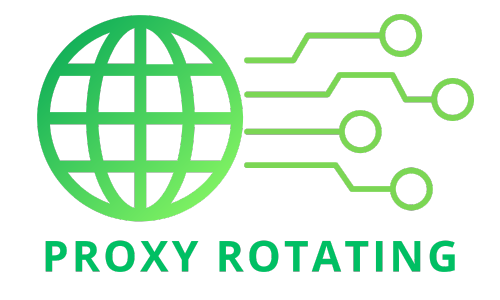The Data Privacy Act is an essential legislative framework that protects the integrity and confidentiality of personal data. Enacted to counter rising digital privacy threats, it regulates data handling, storage, and processing, fortifying individuals’ privacy rights in the modern digital landscape.
What is the Data Privacy Act?
The Data Privacy Act is legislation designed to protect individuals’ data by regulating its collection, storage, processing, and use. It aims to ensure that personal information remains secure and that individuals control how organizations handle their data. This act typically outlines requirements for data protection, privacy policies, consent mechanisms, and penalties for non-compliance. Its primary objective is safeguarding individuals’ privacy rights in an increasingly data-driven world.

Essential elements of the Data Privacy Act
Individuals’ rights regarding their data
Individuals’s rights to their data and information are paramount in the Data Privacy Act. This legislation affords individuals several vital rights:
Access: Individuals have the right to access the data held by organizations, which allows them to know what information is being collected and how it is being used.
Correction: If individuals discover inaccuracies or incomplete information in their data, they can request corrections or updates to ensure data accuracy.
Deletion: Individuals can request the deletion or erasure of their data under certain circumstances, such as when the data is no longer necessary for the purposes for which it was collected or if the individual withdraws consent.
Opt-Out: Individuals can opt out of certain data processing activities, such as targeted advertising or data transfers to third parties, giving them control over how their data is used.
Global Opt-Out Mechanisms: The Data Privacy Act mandates the establishment of global opt-out mechanisms, allowing individuals to opt out of data processing activities across multiple platforms or services.
These rights empower individuals to assert control over their data, ensuring transparency, accountability, and respect for privacy in the digital age.

Responsibilities of organizations collecting and using data
Organizations that collect and use data bear significant duties under the Data Privacy Act to protect personal information and ethical handling. These duties encompass:
Transparency: Organizations must clearly and easily understandably inform individuals how their data will be collected, used, and shared.
Lawful Basis: Data collection and processing must have a lawful basis, such as consent from the individual, necessity for contractual performance, compliance with legal obligations, protection of vital interests, performance of a task carried out in the public interest, or legitimate interests pursued by the organization or a third party.
Purpose Limitation: Data must be gathered solely for clear, explicit, and legitimate reasons and should only be further processed in ways that align with these initial purposes.
Data Minimization: Organizations should collect only the essential personal data for the specified purpose.
Security Measures: Adequate measures must be implemented to protect personal data from unauthorized access, disclosure, alteration, or destruction.
Accuracy: Organizations are responsible for ensuring the accuracy and currency of the personal data they hold and must take steps to correct or update inaccurate or outdated information.
Accountability: Organizations must be accountable for their data processing activities and establish internal mechanisms to ensure compliance with data protection principles and obligations.
Data Subject Rights: Organizations must respect and facilitate the exercise of individuals’ rights, such as access, rectification, erasure, and objection to data processing.
Data Transfer: If personal data is transferred to third parties or international organizations, organizations must ensure that appropriate safeguards are in place to protect the data.
Data Protection Impact Assessment (DPIA): Organizations should conduct DPIAs for processing activities that pose a high risk to individuals’ rights and freedoms, assessing the necessity and proportionality of the processing.
Security Measures for Personal Data
Personal data security measures are essential for organizations to protect individuals’ sensitive information from unauthorized access, disclosure, alteration, or destruction. Some critical security measures include:
Encryption: Encrypting personal data at rest and in transit helps safeguard it from interception or unauthorized access. This involves converting data into a ciphertext that can only be decrypted with the appropriate encryption key.
Access Controls: Establishing access controls guarantees that personal data is accessible only to authorized personnel. This includes role-based access control (RBAC), multi-factor authentication (MFA), and least privilege access principles.
Data Minimization: Limiting the amount of personal data collected and stored reduces the risk of exposure to a security breach. Organizations should keep only the data that is essential for the specified purpose.
Regular Updates and Patch Management:
Regularly updating software, operating systems, and security measures with the latest patches and updates is crucial for addressing known vulnerabilities and minimizing the risk of attacks by malicious entities.
Secure Storage: Personal data should be stored in safe environments, such as encrypted databases or secure cloud storage platforms, with appropriate access controls and monitoring.
Data Backup and Recovery: Regularly backing up personal data and implementing robust data recovery processes helps ensure data availability and resilience in data loss or corruption.
Employee Training and Awareness: Comprehensive training and awareness programs for employees on data security best practices, including phishing awareness and social engineering prevention, help mitigate the risk of human error or insider threats.
Monitoring and Logging: Implementing monitoring and logging mechanisms allows organizations to detect and respond to security incidents promptly, enabling them to effectively investigate and mitigate potential breaches.
Incident Response Plan: Developing and regularly testing an incident response plan enables organizations to respond swiftly and effectively to security incidents, minimizing the impact on individuals and the organization’s reputation.
Compliance with Regulations: Ensuring compliance with relevant data protection regulations and standards, such as the Data Privacy Act, helps organizations establish a strong foundation for personal data security and maintain stakeholder trust.

Why are comprehensive data privacy laws essential in the digital age?
Comprehensive data privacy laws are essential in the digital age for several key reasons:
- Increased collection and use of personal data: In the digital age, vast amounts of personal data are being collected, stored, and processed by various entities, including businesses, social media platforms, and governments. This data includes sensitive information such as financial details, health records, and online behavior. Comprehensive laws are necessary to protect individual’s privacy rights and prevent data misuse.
- Data privacy laws empower individuals with greater control over their data, allowing them to decide how it is collected, used, and shared. This helps preserve individual rights and dignity and prevents unauthorized surveillance and manipulation.
- Building trust between individuals and organizations: Robust data privacy laws foster trust between individuals and the organizations that handle their data. When individuals know their data is protected, they are more likely to share information willingly, enabling businesses to provide better services and build stronger customer relationships.
- Mitigating risks of data breaches and misuse: Data breaches and misuse of personal data can have severe consequences, including identity theft, financial fraud, and reputational damage. Comprehensive laws that mandate security measures and impose penalties for non-compliance help mitigate these risks and protect individuals from harm.
- Promoting ethical data practices: Data privacy laws encourage organizations to adopt ethical data handling practices, demonstrate respect for individuals’ rights, and contribute to a more responsible digital ecosystem. Businesses can positively impact society by prioritizing privacy and maintaining a competitive edge.
- Keeping pace with technological advancements: As new technologies like artificial intelligence and the Internet of Things evolve, data privacy laws must adapt to address emerging privacy concerns. Comprehensive legislation provides a framework for balancing innovation with protecting personal information.
In summary, comprehensive data privacy laws are essential in the digital age to safeguard individuals’ rights, build trust, mitigate risks, promote ethical practices, and keep pace with technological advancements. They serve as a critical foundation for a secure and privacy-conscious digital ecosystem.

How does the Data Privacy and Protection Act impact businesses?
The Data Privacy and Protection Act has a significant impact on businesses in the following ways:
- Consent Requirements: Businesses must obtain explicit, freely given, specific, informed, and unambiguous consent from users before collecting, processing, or using their data.
- Purpose Limitation: Businesses can only collect and use personal data for specific, explicit, and legitimate purposes. They can only use the data for other purposes if they obtain additional consent.
- Data Minimization: Businesses must limit the collection and use of personal data to what is necessary for the specified purposes. They cannot collect or retain more data than is required.
- Data Subject Rights: The Act gives consumers rights such as the right to access, correct, delete, and object to the processing of their data. Businesses must have processes in place to fulfill these requests.
- Data Breach Notification: Businesses must notify users and the regulator of any data breaches within a reasonable timeframe, though the exact definition of “reasonable” is still to be determined.
- Data Protection Officer: Larger businesses may be required to appoint a dedicated Data Protection Officer to oversee compliance with the Act.
- Increased Compliance Costs: Implementing the necessary policies, technologies, and processes to comply with the Act will likely increase businesses’ operational costs.
Overall, the Data Privacy and Protection Act aims to give consumers more control over their data and hold businesses accountable for collecting, using, and protecting that data. Compliance is critical to avoid significant fines and reputational damage.
How does the Data Privacy and Protection Act impact individuals
The Data Privacy and Protection Act has a significant impact on individuals in the following ways:
- Increased Control over Personal Data: The Act gives individuals more rights and control over their data, such as accessing, correcting, deleting, and objecting to the processing of their data.
- Consent Requirements: Businesses must obtain explicit, freely given, specific, informed, and unambiguous consent from individuals before collecting, processing, or using their data. This empowers individuals to decide how their data is used.
- Purpose Limitation: Businesses can only collect and use personal data for specific, explicit, and legitimate purposes. They cannot use the data for other purposes without obtaining additional consent from the individual.
- Data Minimization: Businesses must limit the collection and use of personal data to what is necessary for the specified purposes. They can only collect or retain what is required, assuring individuals that their data is handled responsibly.
- Data Breach Notification: Individuals must be notified of any data breaches within a reasonable timeframe, allowing them to take appropriate actions to protect themselves in case of misuse of their personal information.
- Increased Transparency: The Act requires businesses to be more transparent about their data collection and processing practices, enabling individuals to make informed decisions about sharing their personal information.
- Improved Trust: The Act helps build trust between individuals and organizations by empowering individuals with more control over their data and holding businesses accountable for data protection. This is crucial for the digital economy to thrive.
Overall, the Data Privacy and Protection Act aims to safeguard individuals’ fundamental right to privacy and ensure that their data is collected, used, and protected relatively and transparently.

Compare the ACT Data Privacy Act with other data privacy laws
| Aspect | Data Privacy Act (DPA) | General Data Protection Regulation (GDPR) | California Consumer Privacy Act (CCPA) |
| Scope | Targets the US commercial sector | This applies throughout the European Union | Pertains to residents of California |
| Applicability | Applies to commercial businesses | Relates to organizations handling data of EU citizens | Applies to businesses that handle data of California residents |
| Rights of Individuals | Rights to access, correct, delete, or opt-out of data | Rights to access, rectify, erase, and port data | Rights to access, delete, opt out, and freedom from discrimination |
| Consent Requirements | Consent is necessary | Explicit consent is required in specific contexts | Necessitates opt-out consent for selling personal information |
| Penalties for Non-Compliance | This entails fines and additional penalties | Penalties can reach up to 4% of global annual revenue | Includes statutory damages and regulatory fines |
Consequences of violating the Data Privacy Act
Violating the Data Privacy Act can result in severe consequences for organizations, including:
Fines and Penalties: Depending on the severity of the violation, organizations may face significant fines and penalties imposed by regulatory authorities. These fines can amount to millions of dollars and are typically based on the nature and extent of the violation.
Legal Action: Individuals affected by data breaches or privacy violations may pursue legal action against the organization, which can lead to costly lawsuits, settlements, and damages.
Reputational Damage: Data breaches and privacy violations can tarnish an organization’s reputation and erode customer, partner, and stakeholder trust. Adverse publicity and media scrutiny may have long-lasting effects on brand perception and consumer confidence.
Loss of Customers: Following a data breach or privacy incident, customers may lose trust in the organization’s ability to protect their personal information, leading to customer churn and loss of business.
Regulatory Scrutiny: Violations of the Data Privacy Act may trigger regulatory investigations and audits, resulting in additional scrutiny and oversight from regulatory authorities. This can further expose the organization to fines, penalties, and remediation requirements.
Business Disruption: The aftermath of a data breach or privacy violation can disrupt normal business operations, diverting resources and attention away from core activities. Remediation efforts, such as forensic investigations and implementing corrective measures, can be time-consuming and costly.
Exclusion from Contracts: Non-compliance with data privacy regulations may result in exclusion from contracts or partnerships with other organizations prioritizing data security and compliance.

In conclusion, the Data Privacy Act is a crucial legislative framework to safeguard individuals’ data in the digital age. However, compliance with the Data Privacy Act is not merely a legal obligation but a fundamental necessity for businesses to maintain trust, protect their reputation, and mitigate the risks of data breaches and regulatory penalties. Thus, as technology advances and data becomes increasingly valuable, upholding the principles of the Data Privacy Act remains paramount in fostering a secure and privacy-respecting digital ecosystem. Accessing a Proxy Rotating website can provide further detailed information about the Data Privacy Act and its implications.
>> See more:
Data privacy evaluates moral problems related to data
